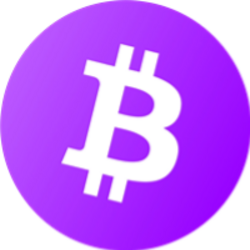
The world today stands at a familiar yet urgent crossroads. Economic systems that once promised stability and growth are faltering under the weight of centralized control, spiraling inequality, and a relentless focus on short-term gains. The cracks in the foundation are evident from extreme poverty to runaway inflation and widespread disillusionment. Against this backdrop, a powerful concept is emerging: the divine economy.
This is not a utopian ideal, but a long-term, practical reimagination of civilization’s economic future one grounded in sound money, true prosperity, and renewed human relationships. Drawing inspiration from decentralized innovations like Bitcoin, the divine economy envisions a global system where ethical principles and economic functionality coexist and thrive.
A Global Currency Anchored in Trust
At the heart of this vision is the need for a global currency rooted in sound money one that resists manipulation, inflation, and political agendas. Unlike fiat systems that dilute value through unchecked issuance, a decentralized currency like Bitcoin introduces transparency, scarcity, and long-term accountability.
Imagine a world where:
- Savings retain value across generations
- Monetary policy is algorithmic and non-discretionary
- Currency is immune to regional politics and centralized distortion
Such a system fosters financial prudence and encourages nations to compete through innovation and policy not through currency wars or debt cycles. This is not a rejection of national sovereignty but a reconfiguration of global cooperation built on mutual respect and fiscal integrity.
Redefining True Prosperity
Material wealth alone does not define a thriving civilization. The divine economy prioritizes human nobility values like creativity, honesty, resilience, and compassion. Prosperity, in this context, includes:
- Community strength over individual accumulation
- Ethical leadership over exploitative gains
- Policies that elevate dignity and shared well-being
This shift demands a fundamental change in how we relate to one another—seeing others’ progress as integral to our own, and measuring success by the health of communities, not just stock portfolios.
New Relationships, Not Just New Technologies
While blockchain and crypto offer powerful tools, social transformation must accompany technological evolution. In a divine economy:
- Free markets are complemented by generosity
- Philanthropy is authentic and community-rooted
- Success uplifts both the wealthy and the marginalized
Generosity becomes an engine for stability, not a marketing tool. Businesses reinvest in underserved communities, not for image but because a rising tide truly lifts all boats.
Compassion as a Practical Economic Force
Compassion is not just a moral value it’s an economic catalyst. Bitcoin’s decentralized nature already empowers those in unstable regimes by offering them access to a censorship-resistant global financial network. But to scale this compassion, systems must be built that:
- Support non-technical users
- Distribute value locally
- Reward long-term thinking over short-term greed
For example, Bitcoin mining revenues could be redirected toward community infrastructure, education, or clean energy integrating economic incentives with social good.
Overcoming Challenges with a Thousand-Year Perspective
This transition is not without resistance. Bitcoin faces hurdles: scalability, energy usage, and regulatory pushback. Global currency implementation must contend with deep-seated geopolitical interests. But these challenges, though real, are not insurmountable.
What’s required is a thousand-year vision a willingness to work incrementally toward a civilization that values justice over exploitation and service over ambition. As history has shown, systems that ignore ethics eventually collapse. The divine economy, by contrast, is built to endure.
Building the Future, Step by Step
The divine economy is not a fixed blueprint it’s a direction. It’s a call to action rooted in Bitcoin’s lessons, free market dynamism, and spiritual conviction. It asks us to imagine a world where money serves humanity, not the other way around. Where competition brings out the best in us. Where prosperity is not hoarded, but shared.
We have the tools. Now we must summon the will. One step, one system, and one generation at a time we can build the civilization we’ve always imagined.




































































































































































































































































































































































































































































































































































































































































































































































































































































































































































































































